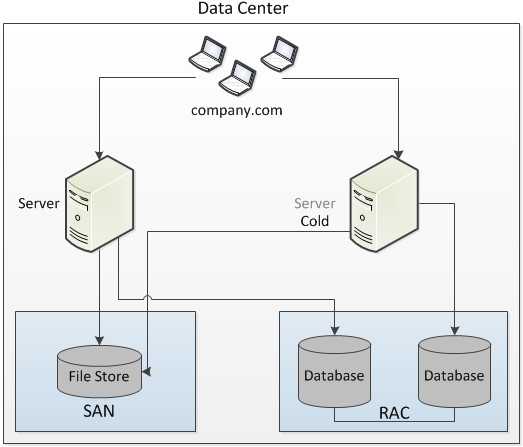For disaster recovery where high availability is not required, you can use a cold standby strategy to ensure server availability in case of system failure. When the primary system fails, the cold standby is brought online and promoted to the primary server. Once online, the standby reestablishes connections with all agents, performs recovery, and proceeds with any queued processes. Because the most intense work is handed-off to agents, a high performance configuration should not have an agent installed on the same hardware as the main server.
When using the cold standby data center configuration, you should typically configure the data tier with network storage and a clustered database. The service tier performs best when it's on a dedicated, stable, multi-core machine with a fast connection to the data tier. A standby machine should be maintained and kept ready in case the primary server goes down.
A typical cold standby data center configuration is shown in the following figure.
Figure 1. Disaster Recovery with a Cold Standby System
